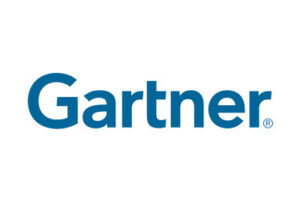Industries
Technology
Navigating Digital Transformation & Cybersecurity Challenges
Software and IT service providers are under increasing pressure to drive transformation, enhance customer experience, and meet growing cybersecurity and data privacy demands. At the same time, geopolitical factors and fierce competition add further complexity, prompting many corporations to turn to third-party service providers for specialized expertise.


The Hidden Challenges of Third-Party Service Management
Despite the benefits of outsourcing, working with external service providers presents challenges. Companies often struggle to assess the quality, long-term relevance, and true value of services rendered, making it difficult to determine whether the investment was worthwhile.
The procurement of IT services involves multiple stakeholders—from identifying a problem and defining requirements to selecting providers, governing their work, and measuring outcomes. Without clear processes, managing these collaborations can be inefficient and unpredictable.
Automation The Key to Streamlined Supplier Collaboration
Manufacturers often manage supplier interactions manually using emails, phone calls, and Excel spreadsheets. This outdated approach is not only time-consuming and error-prone but also contributes to supply chain disruptions, leading to delays in production.
Automating supplier communication enhances transparency in order scheduling, ensures compliance, and minimizes inefficiencies. Automated tracking, follow-ups on missing data, and real-time process guidance reduce risks and improve operational efficiency.
For manufacturing and IT service procurement alike, a successful solution must treat each process as unique—applying tailored policies, ensuring compliance, detecting discrepancies, and resolving disputes. The key to maximizing ROI lies in a holistic approach that integrates procurement activities into a seamless, automated system.

“By providing real-time visibility to receivable worthiness and partnering with non-bank capital resources, Nipendo is expanding the range of available trade financing options at a time of great need.”

David Gustin
President, Global Business Intelligence and Managing Editor, Trade Financing Matters.

“We deployed Nipendo back in 2017 and found the Nipendo team extremely helpful and professional. We were able to continue working in our ERP system as before but saw a 180-degree shift in the way invoices were managed and in supplier relations. Before Nipendo, we manually processed invoices and keyed in data, had piles of paperwork, lost invoices, and missed payment dates. We now have full transparency into invoice processing and payment status, better supplier relations and an associated improvement in supply chain, along with overall improved organizational efficiencies.”

Yehudit Alkobi
Head of Finance Departmentt

“Nipendo enables interoperability between different supplier communication solutions (for example, electronic data interchange [EDI], supplier networks and e-invoicing), allowing enterprises to rapidly achieve over 90% straight-through processing of all supplier invoices directly to their existing ERP systems.”
Gartner
Cool Vendors in Integration, 2014
“Nipendo is the real deal when it comes supporting both application capability in P2P, such as e-invoicing and the connectivity or network layer itself.”

Jason Busch
Cool Vendors in Integration, 2014

“Admittedly, we were initially reluctant to deploy Nipendo, fearing it would add to our work and possibly require the hiring of additional staff. We would likely not have done so had our customer not required us. However, after deploying the platform using a B2B connection, we realized significant benefit from it and now urge our customer to expand the platform’s utilization. We find ourselves spending far less time around invoice submission and, since we have full transparency into the process and into invoice and payment status, we no longer need to call the customer directly. Our business processes have improved significantly, and we’re better able to plan ahead.”

Yakir Dvir
Chief Information Officer

“Before moving to Nipendo’s digital platform, we had to manually process hundreds of thousands of physical documents… we were sometimes late paying our suppliers… Nowadays the Electric Company receives the vast majority of invoices through Nipendo’s digital platform, which automatically examines them and provides intelligent validations… Once we started using Nipendo our work processes shortened and became more efficient. The number of people required to handle invoices was reduced and the company’s ability to comply with payment obligations to suppliers improved significantly.

Masha Alony
Head of Accounting Division

“The Nipendo platform has enabled IAI to significantly improve supply chain efficiencies and supplier relations by creating transparency, and by automating the bulk of documentation along with the proper validations. This has freed up our team to address more value-add challenges, has eliminated data errors, and has enabled us to meet our SLA vis-à-vis suppliers and customers. Beyond the technology’s ability to address complex matters, the Nipendo team has demonstrated drive, flexibility, and creativity. All of this has encouraged us to move into new areas with Nipendo and to strive towards making it a one-stop-shop for IAI and its global suppliers.”

Eyal Morad
Deputy COO and VP Supply Chain
“By providing real-time visibility to receivable worthiness and partnering with non-bank capital resources, Nipendo is expanding the range of available trade financing options at a time of great need.”

David Gustin
President, Global Business Intelligence and Managing Editor, Trade Financing Matters.

“We deployed Nipendo back in 2017 and found the Nipendo team extremely helpful and professional. We were able to continue working in our ERP system as before but saw a 180-degree shift in the way invoices were managed and in supplier relations. Before Nipendo, we manually processed invoices and keyed in data, had piles of paperwork, lost invoices, and missed payment dates. We now have full transparency into invoice processing and payment status, better supplier relations and an associated improvement in supply chain, along with overall improved organizational efficiencies.”

Yehudit Alkobi
Head of Finance Departmentt

“Nipendo enables interoperability between different supplier communication solutions (for example, electronic data interchange [EDI], supplier networks and e-invoicing), allowing enterprises to rapidly achieve over 90% straight-through processing of all supplier invoices directly to their existing ERP systems.”
Gartner
Cool Vendors in Integration, 2014
“Nipendo is the real deal when it comes supporting both application capability in P2P, such as e-invoicing and the connectivity or network layer itself.”

Jason Busch
Cool Vendors in Integration, 2014

“Admittedly, we were initially reluctant to deploy Nipendo, fearing it would add to our work and possibly require the hiring of additional staff. We would likely not have done so had our customer not required us. However, after deploying the platform using a B2B connection, we realized significant benefit from it and now urge our customer to expand the platform’s utilization. We find ourselves spending far less time around invoice submission and, since we have full transparency into the process and into invoice and payment status, we no longer need to call the customer directly. Our business processes have improved significantly, and we’re better able to plan ahead.”

Yakir Dvir
Chief Information Officer

“Before moving to Nipendo’s digital platform, we had to manually process hundreds of thousands of physical documents… we were sometimes late paying our suppliers… Nowadays the Electric Company receives the vast majority of invoices through Nipendo’s digital platform, which automatically examines them and provides intelligent validations… Once we started using Nipendo our work processes shortened and became more efficient. The number of people required to handle invoices was reduced and the company’s ability to comply with payment obligations to suppliers improved significantly.

Masha Alony
Head of Accounting Division

“The Nipendo platform has enabled IAI to significantly improve supply chain efficiencies and supplier relations by creating transparency, and by automating the bulk of documentation along with the proper validations. This has freed up our team to address more value-add challenges, has eliminated data errors, and has enabled us to meet our SLA vis-à-vis suppliers and customers. Beyond the technology’s ability to address complex matters, the Nipendo team has demonstrated drive, flexibility, and creativity. All of this has encouraged us to move into new areas with Nipendo and to strive towards making it a one-stop-shop for IAI and its global suppliers.”

Eyal Morad
Deputy COO and VP Supply Chain
